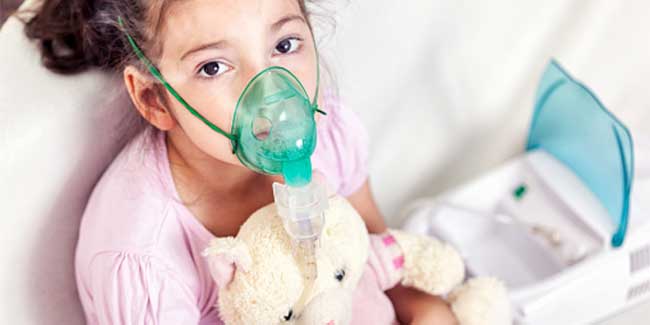The Spanish Society of Pneumology warns that children’s schools are frequent sites of infection during the autumn and winter months and recommend that children are not taken to them if they have colds
Pulmonologists also advise that the age at which the children start nurseries is increased in order that children are not infected with the bronchiolitis virus, especially in autumn and winter. This is one of the recommendations made by the Spanish Society of Pneumology and Thoracic Surgery (Separ) to deal with the virus that is currently affecting a high number of children under the age of two and is responsible for numerous hospital admissions. They say that in recent days up to fifty children have had to be admitted to the different public hospitals in the province, five of them are currently in Intensive Care Units.
Separ imply that nurseries are a frequent site of infection and although they recognise that parents have to go to work they say that they should not take their children to the daycare centres if they have a cold otherwise they could be responsible in starting a chain of infections .
The peak of this disease usually occurs between October and January and although the situation in local hospitals is a little better than days ago, the province of Alicante is in a critical situation with regard to incidences of bronchiolitis this week, since the flu is at very low levels. However, pediatricians fear a rise in cases in the coming days due to the sudden drop in temperatures.
The disease is especially affecting babies under six months, as a result of which there is an increase in hospital admissions, more than other years. The Spanish Society of Pneumology and Thoracic Surgery has published advice coinciding with the peak of the disease.
In addition to keeping children out of nurseries, they also advise people with a cold not to approach a baby although if an approach cannot be avoided, always wash your hands or put on a mask.
Bronchiolitis is a disease caused by a virus , which causes inflammation affecting the entire respiratory system. The main symptoms are that the child has difficulty breathing and coughing and cannot each because he is exhausted. Over 20% of all consultations in health centres at this time are for symptoms of bronchiolitis.
However, In most cases it is a disease that pediatricians can deal with. It is only advisable to go to the emergency centres of the hospitals if the child has difficulty breathing. Faced with this condition there is no specific medication and the infection cannot be treated with antibiotics.





